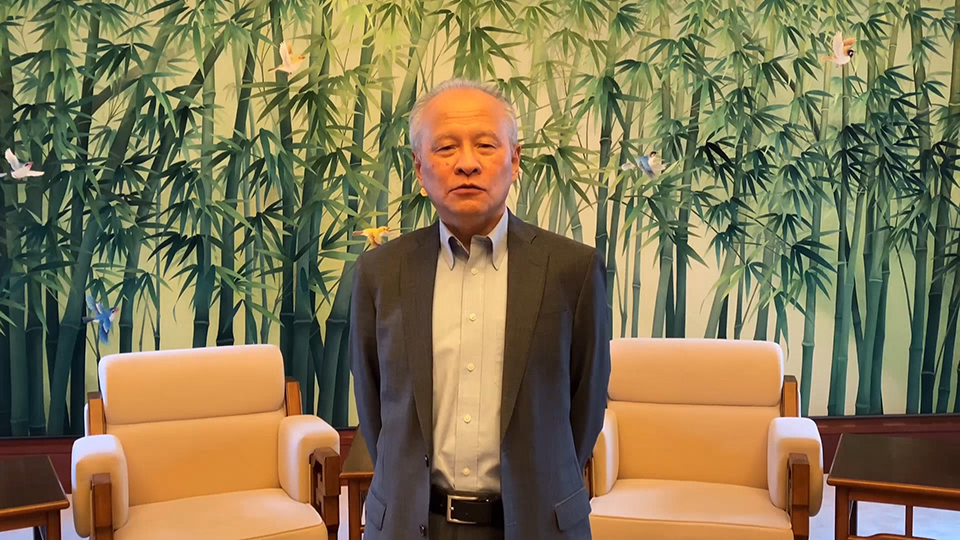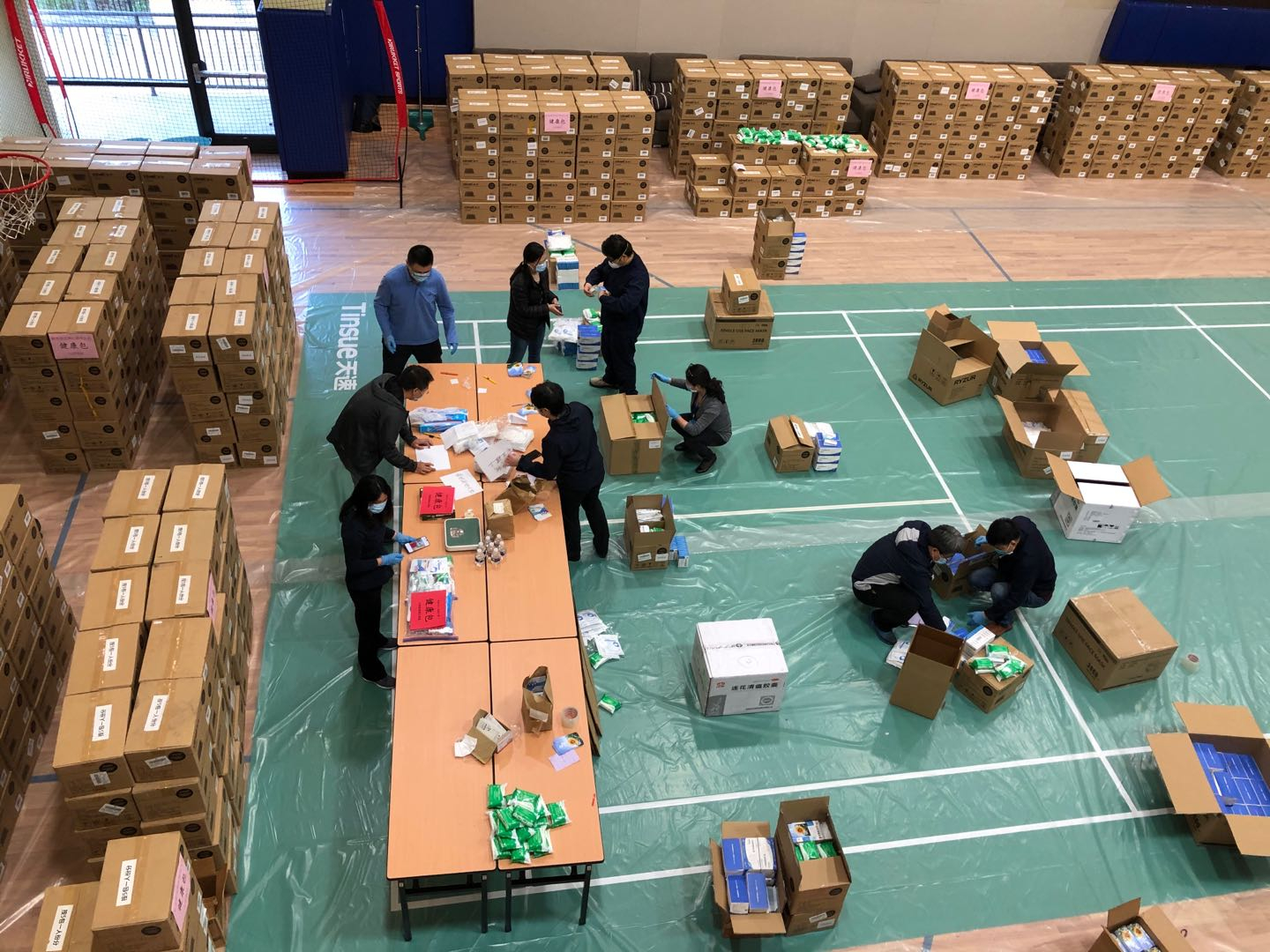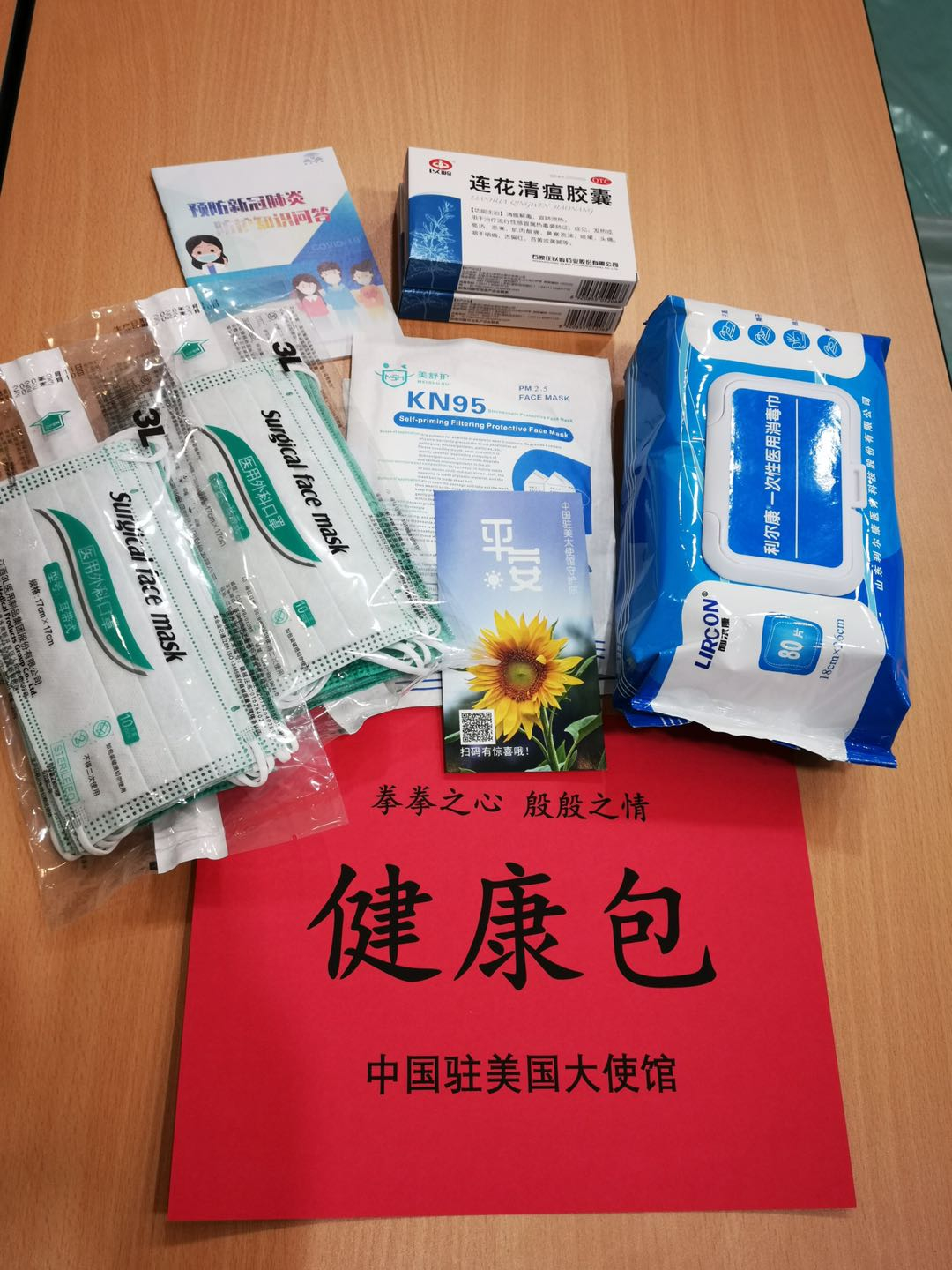03:42

On Wednesday morning, a truck filled with supplies, including masks, wipes and traditional Chinese medicine, arrived at an embassy-owned facility in Washington and the staff soon began sorting various supplies to be bundled into sanitary packages that will be distributed to oversea Chinese students in the U.S.
Cui Tiankai, The Chinese Ambassador to the U.S., addressed to Chinese students in the U.S. on Wednesday on the arrival of the first batch of protective supplies.
Mr. Cui said although the Chinese mainland is facing it own challenges regarding balancing outbreak prevention and the economy, the country still cares about its students overseas, and the embassy was keen on working out sourcing and shipping options to ensure a timely delivery of the sanitary packages. He said the Chinese embassy will keep close contact with domestic institutions to ensure the timely arrival of additional supplies.
"What these sanitary packages imply is our country's thoughts and regards toward everyone," he said.
As of April 10, there are over 480,000 confirmed cases in the U.S., and a daily increase of over 30,000, making this country the world's COVID-19 epicenter.

Staff at Chinese embassy in Washington handles the first batch of supply.
Staff at Chinese embassy in Washington handles the first batch of supply.
How students cope with COVID-19 globally
It is the first time in history that the Chinese embassy distributed protective goods to Chinese students all over the world instead of having them rely on local resources. These goods have long sold out in major retail chains as well as major grocery stores. Students regularly resort to mails from the home country or trading among themselves.
Because of health risks associated with long-distance travels as well as academic challenges, many overseas students chose to stay in their countries of study.
Many students in countries like Italy, where the Chinese embassy started distributing sanitary packages weeks ago, have shared pictures of sanitary packages they received. From pictures they shared on social media, there were not only protective goods and medicines as embassies elsewhere offered, but also handwritten poems out of care for the students.
However, as many student experience difficulties such as dormitory closures, they had no choice but to take flights home. Many students wear face masks and protective suits during travel. To minimize risks of infection, many also spent nearly 30 hours on airplanes without drinking and eating.

Sanitary package to Chinese students in the U.S.
Sanitary package to Chinese students in the U.S.
How to properly wear a face mask
As of April 10, many regions in the U.S., including California and Washington DC, have mandated the use of face masks in certain public places such as grocery stores. Once you secure a surgical or an N95 mask, it is important to use it properly.
According to World Health Organization, face masks are supposed be used after hand-cleaning with soap or alcohol-based hand rub with water. After you put on a mask, it's equally important to make sure your mouth and nose are fully covered and there's no gap between your face and the mask.
Another thing you need to keep in mind is the proper handling and disposal during and after the use of a mask. To avoid contamination, the World Health Organization suggested the masks not be touched at any time unless you clean your hands. In addition, masks intended for single use should be discarded in a closed bin without reusing.